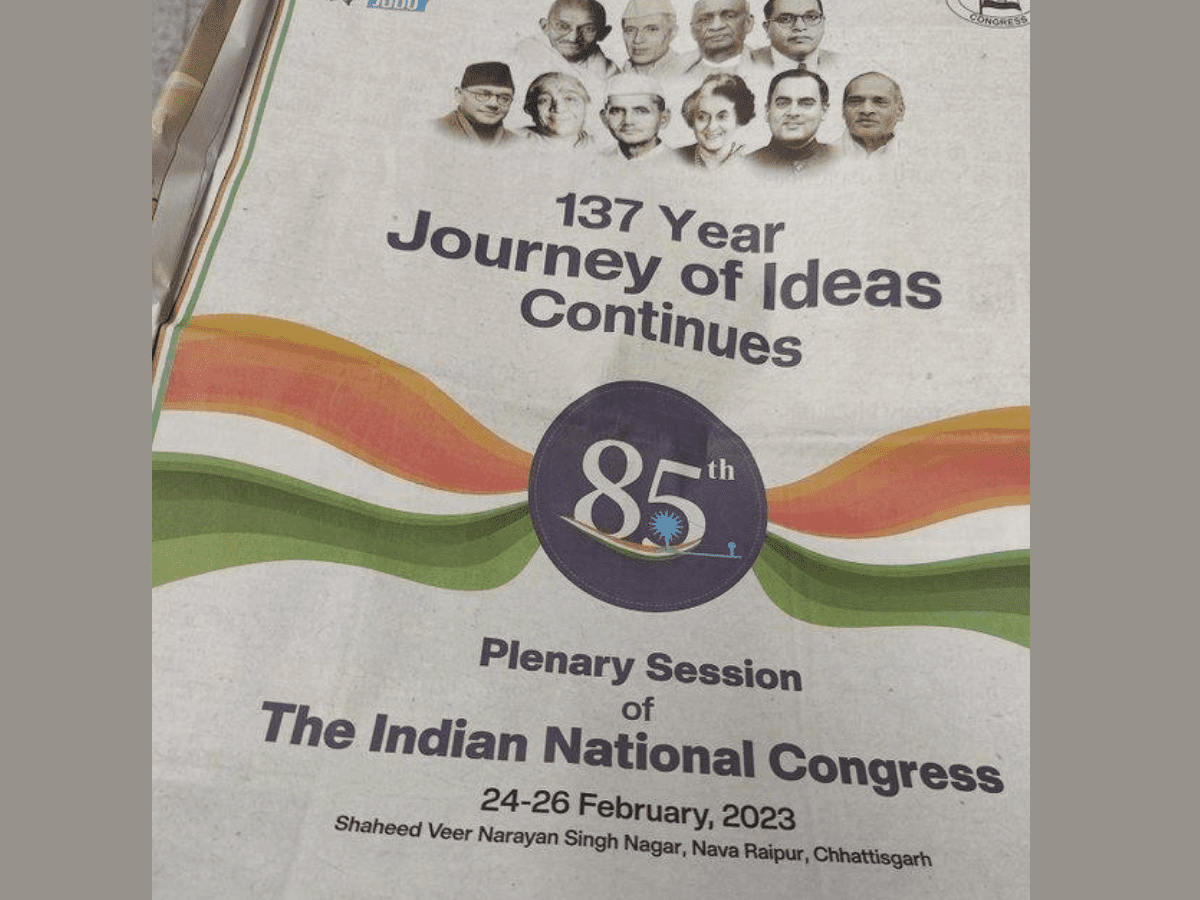
The Congress party’s advertisement for its plenary session happening in Chattisgarh has received criticism from different quarters for two reasons: omitting the image of Maulana Abul Kalam Azad and including the image of former Prime Minister PV Narasimha Rao.
On criticism around Maulana Azad’s ommission, Congress MP Jairam Ramesh apologised the ‘inexcusable slipup’.
“Today an ad released by INC did not carry a photograph of Maulana Azad. It was an inexcusable slipup. Responsibility for it is being fixed & action will be taken. Meanwhile, this is a most sincere apology from us. He will always remain an iconic & inspiring figure for us & India,” he tweeted.
Abul Kalam Ghulam Muhiyuddin Ahmed bin Khairuddin Al-Hussaini Azad was a senior leader of the Indian National Congress and an Indian independence activist, Islamic theologian, and writer.
Following India’s independence, he was appointed as the country’s First Minister of Education. He is best known as Maulana Azad and he used the pen name Azad. His contribution to the establishment of the education foundation in India is recognised by declaring his birthday as National Education Day throughout the country.
Adding to the fire, the All India Majlis-E-Ittehadul Muslimeen (AIMIM) on Sunday called the inclusion of former Prime Minister PV Narasimha Rao’s image in an advertisement of the Congress party’s plenary an indication of its ‘secularism’.
“The inclusion of PV Narasimha Rao says everything we need to know about Congress party’s “secularism”. As Prime Minister, Narasimha Rao played an essential role in the demolition of Babri Masjid. It should not be forgiven or forgotten, the party tweeted.
Even in 2020, when Telangana chief minister K Chandrashekhar Rao and the ruling TRS gave a call for a state assembly resolution to give Bharat Ratna to the former PM, AIMIM MLAs boycotted the proceedings.
Narasimha Rao is often criticised for ‘not doing enough’ to stop the demolition of the Babri Masjid which took place on December 6, 1992, when he was the country’s Prime Minister.
The Babri Masjid was illegally demolished on December 6, 1992, by a large group of activists from the Vishva Hindu Parishad and other organisations. The 16th-century Babri Masjid in the Uttar Pradesh city of Ayodhya had been the site of a long-running socio-political dispute, and it was targeted after a political rally organised by Hindu nationalist organisations turned violent.
